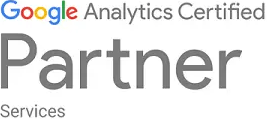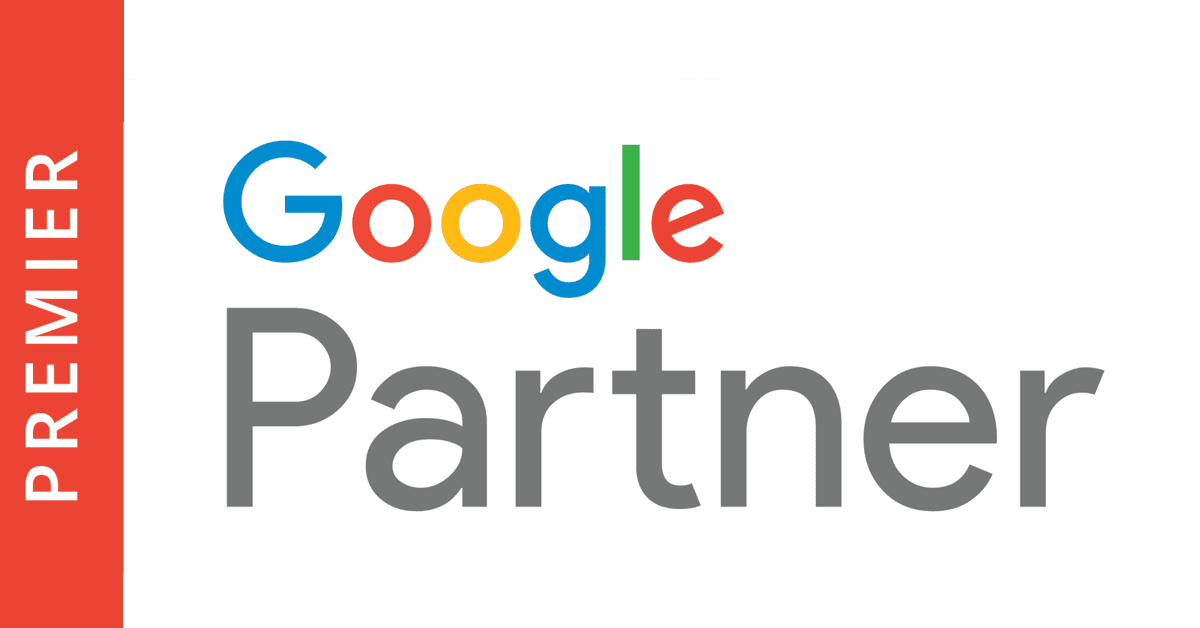So many businesses today are turning to the online realm to promote their brand and offerings. It’s an easy decision – with advanced audience targeting and a variety of formats available that capture hours of individual attention each day, it is quite easily the most effective marketing channel available today.
And yet, within this space of untapped opportunity, there are myriad types of digital marketing available that businesses must explore if they want to thrive online.
In this comprehensive guide, our experts at Digital Eagles delve into the six fundamental categories of digital marketing:
- Search Engine Optimisation (SEO)
- Search Engine Marketing (SEM)
- Social Media Advertising
- Organic Social Media Management
- Content Marketing
- Email Marketing
Each type offers unique advantages and plays a vital role in a cohesive internet marketing service. Whether you’re a budding digital marketing consultant, a seasoned marketing company, or a business owner eager to expand your online presence, this article is your roadmap to elevating your brand, attracting and retaining customers, and ultimately driving your business’s success in the digital domain.
1. Search Engine Optimisation (SEO)
Search engines are where we go to find answers. Google alone receives over 8.5 billion searches every day. So, if potential customers are looking for solutions to problems that your products or services provide, wouldn’t you want to be on the top of search engine results pages (SERPs)?
SEO can help you get there.
We’re not talking about simply peppering website copy with keywords; it’s a sophisticated blend of content relevance, user experience, and strategies that align with what search engines consider non-negotiable.
When a marketing company leverages SEO, for example, it transforms a website into a magnet for potential customers. The SEO meaning in marketing transcends mere search rankings and instead works to create a digital footprint set to resonate with both algorithms and human interests. Your digital marketing consultant might emphasise the importance of SEO in establishing brand credibility, ensuring that when someone searches for a service or product, your website is not just visible at the top of search engines, but deemed authoritative, with a slew of referring links and recommendations.
For many, SEO is the foundation for successful web marketing services, ensuring long-term visibility and customer engagement.
The Key Elements of SEO Marketing
- Keyword Research: Identifying the right keywords that target audiences use in search queries.
- On-page Optimisation: Enhancing individual web pages and user experience for higher ranking and more relevant traffic.
- Backlink Building: Gaining high-quality links from other websites to boost domain authority.
- Technical SEO: Ensuring website structure, speed, and mobile friendliness are optimised for search engines.
2. Search Engine Marketing (SEM)
SEM is another powerful tool in the arsenal of marketing companies and private businesses alike aiming to make an instant impact in the digital world. Unlike SEO, SEM involves paid ads on search engines, such as Google Ads services. The strategy allows businesses to place themselves directly in the line of sight of potential customers who are actively searching for related products or services, placing a bid behind certain keywords that incur a charge when someone clicks the ad.
Such immediate visibility is a game-changer, particularly for new or competitive industries looking to gain brand awareness or fast sales. SEM is a blend of art and science, requiring meticulous keyword research, ad creation, and budget management. It’s not just about getting clicks; it’s about converting those clicks into meaningful engagement. An adept digital marketing consultant understands that SEM is about strategic visibility – ensuring your brand appears right when a prospective customer needs it.
The Key Elements of SEM
- Paid Search Advertising: Using platforms like Google AdWords to display ads in lucrative spots across search engine result pages.
- Keyword Bidding: Competing for keywords that trigger ads to appear in search engine results.
- Landing Page Quality: Developing optimised landing pages that correlate with the ad content.
- Performance Monitoring: Tracking metrics like click-through rates (CTR) and conversion rates to refine strategies.
- Budget Management: Allocating and managing the budget effectively for maximum ROI.
3. Organic Social Media Management
Organic social media management is a subtle yet powerful aspect of internet marketing services, emphasising the ‘social’ in social media. Unlike paid advertising strategies, organic social media involves building and nurturing real relationships with your audience over time. Brands regularly amass vast followings of engaged audiences by creating and sharing content that resonates with target customers and clients, engaging in conversations, and developing a community around your brand.
When you hire someone to do social media management for you, you’re investing in a voice for your brand that speaks directly to your audience’s interests, concerns, and desires. It’s true that the approach requires a deep understanding of your audience, as well as creativity and consistency in content delivery, but effective organic social media management services will foster an unmatched sense of brand loyalty and advocacy, turning followers into brand ambassadors. When done right, this can be just as powerful as any paid social media marketing content.
The Key Elements of Organic Social Media Management
- Content Creation: Producing engaging, relevant, and brand-aligned content.
- Community Engagement: Interacting with followers and participating in social conversations.
- Consistency in Posting: Maintaining a regular and predictable posting schedule.
- Brand Voice and Personality: Establishing a unique and consistent voice across social channels.
- Analytics and Feedback: Using insights and data to refine social media strategies.
4. Social Media Advertising
Now, we transcend routine engagement and venture into the realm of targeted, paid ads on social media platforms. Channels like Meta, LinkedIn and TikTok continuously refine their algorithms to help brands precisely reach a specific audience demographic, leveraging extensive user data. Instagram carousels, Facebook feeds, brand takeover ads on TikTok – social media advertising can take many forms and enables brands to create visually engaging, compelling content tailored to the interests and behaviours of their target audience.
Moreover, hiring someone to do social media advertising ensures that your brand not only gains visibility but also engages in meaningful conversations. The approach transcends traditional advertising methods by still fostering a sense of community and connection with the audience. Social media marketing content isn’t just about selling; it’s about creating stories and experiences that resonate, making your brand a part of your customers’ daily lives.
The Key Elements of Social Media Advertising
- Target Audience Identification: Defining and understanding the demographic for targeted advertising.
- Ad Design and Copywriting: Creating visually appealing and compelling ad content.
- Platform Selection: Choosing the right social media platforms based on where the target audience is most active.
- Engagement Metrics: Analysing likes, shares, comments, and other engagement indicators.
- Ad Spend Management: Budgeting and bidding for ad placement efficiently.
5. Content Marketing
As the name suggests, the content marketing approach focuses on creating and distributing consistent, high-quality content that informs, entertains, and engages, ultimately driving profitable customer action. It ties in with many other aspects of digital marketing, being a big part of the creatives and materials published on social media channels and by an SEO agency, regularly delivering valuable, relevant content to attract and retain a clearly defined audience.
Unlike traditional marketing, content marketing isn’t overtly promotional; it’s about storytelling that resonates with your audience and establishing your brand as a thought leader in your field. Any digital marketing consultant will be able to explain the power of content in driving organic traffic and building brand affinity. Whether it’s blog posts, videos, infographics, or podcasts, each piece of content is a brick in the edifice of your brand’s online presence, designed to attract, delight, and retain customers in a way that feels both organic and intentional.
The Key Elements of Content Marketing
- Content Strategy Development: Outlining objectives, key themes, and distribution channels.
- Content Creation and Curation: Producing original content and sourcing relevant third-party content.
- SEO Integration: Incorporating SEO best practices to enhance content visibility.
- Distribution and Promotion: Leveraging various channels for content dissemination.
- Performance Analysis: Measuring the impact of content through engagement, leads, and sales.
6. Email Marketing
So many people underestimate email marketing as a method from a bygone era. Not only does it remain a cornerstone of effective digital marketing strategies, it still holds some of the highest open and click-through rates of any marketing channel. It offers a direct line to your customers’ inboxes, where personalised communication can flourish, and more targeted campaigns can complement other activities.
It’s more than just sending out newsletters; it’s about segmenting your audience, tailoring messages, and creating relevant, engaging content that encourages readers to take action. This approach combines the personal touch of traditional marketing with the analytics and targeting capabilities of modern technology. An adept digital marketing consultant will emphasise the role of email in nurturing leads, building relationships, and driving conversions. With the right strategy, email marketing can be a powerful tool in your web marketing services arsenal, delivering significant ROI by keeping your brand top-of-mind and fostering long-term customer loyalty.
The Key Elements of Email Marketing
- Email List Building: Growing and maintaining a list of subscribers.
- Personalisation and Segmentation: Tailoring emails to specific segments of the audience.
- Compelling Subject Lines: Creating attention-grabbing subject lines to increase open rates.
- Content and Design: Crafting engaging content and visually appealing email layouts.
- Performance Tracking: Analysing open rates, click-through rates, and conversions to refine campaigns.
Services Offered by Digital Marketing Companies

A digital marketing agency should offer a diverse array of services designed to catapult your brand into the digital spotlight at a much faster (and more affordable) rate. These services range from SEO to comprehensive social media management services, each tailored to meet the unique needs of your business.
A marketing company today is more than just a provider; it’s a partner in crafting your digital strategy. Services also include website development, focusing on website developer e-commerce solutions, to ensure your online presence is both visually appealing and conversion optimised.
Additionally, content marketing agency SEO services are pivotal in driving organic traffic through compelling, keyword-rich content. Google AdWords services and other SEM tactics are also key offerings, providing immediate visibility in the crowded digital space.
Furthermore, with the rise of social media, companies specialise in crafting social media marketing content and managing paid ads on social media, ensuring your brand stays relevant and engaging across various platforms.
Speak with Our Experts at Digital Eagles to Elevate Your Brand Presence Online
Interested in learning more about how digital marketing could propel your business? Speak with our specialists at Digital Eagles today.



















